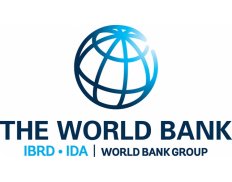Print

Impact Evaluation Synthesis - Understanding the Impact of Financial Services on Development Outcomes
Details
Locations:Africa, Asia, Argentina, Belize, Bolivia, Brazil, Chile, Colombia, Costa Rica, Ecuador, El Salvador, French Guiana, Guatemala, Guyana, Honduras, Mexico, Nicaragua, Panama, Paraguay, Peru, Suriname, Uruguay, Venezuela
Start Date:Jun 25, 2024
End Date:Unknown
Contract value: USD 293,347
Sectors: Banking, Micro-finance, Monitoring & Evaluation
Description
Selection Number: 2007905
Contract Description: Impact evaluation synthesis - understanding the impact of financial services on development outcomes
The main objective of this vendor task is to, first, define, and, later, test an adequate evaluative synthesis method to assess why some customers benefit a lot from the use of financial services while others don’t, and identify the key drivers of this varying impact. This exercise will focus on microcredit and payment services, given data availability and to ensure a manageable scope of analysis. The exercise has three primary objectives.
1) Exploring and leveraging unique supply and demand-side datasets provided by CGAP data partners, which contain information on customers served by financial services providers operating in various countries in Africa, Latin America, and Asia. These datasets contain information on customer characteristics, customer outcomes related to assets and human capital, their financial transactions, financial product characteristics, and the customers’ community context.
2) Using data to explain why the impact of financial services have different impact on different customer segments. Implications for the design of financial inclusion interventions will be discussed. The evaluative synthesis method (or mix of methods) proposed by the vendor selected will be initially guided by a set of questions and subquestion aimed at exploring the dominant channels or mechanisms that explain the variation of the impact of financial services on the different customer segments present in the data. Given the non-experimental nature of the data sets, the evaluative synthesis method proposed will leverage the most appropriate combination of methods for causal explanation (e.g., machine learning, quasi-experimental observational studies, qualitative comparative analysis, probabilistic models, etc.).
3) Informing funders of research as well as research organizations on how the methods can be used, and crowd-in efforts to add to the remaining knowledge gaps when considering different customer segments and financial products from the ones analyzed. As such, the thorough documentations of research design decisions, use of best practice in metadata, reproducible code writing, transparency in identifying and dealing with challenges are expected from the vendor.
